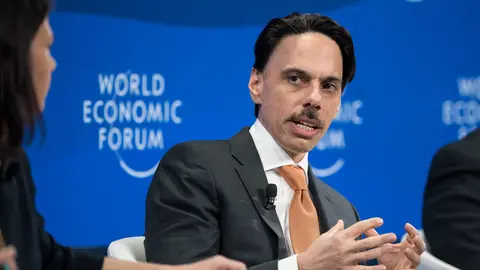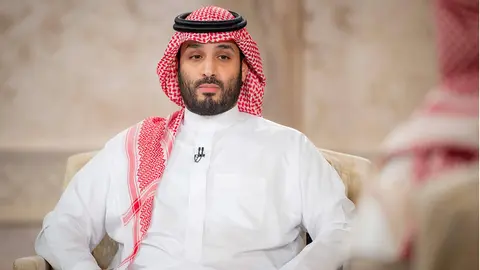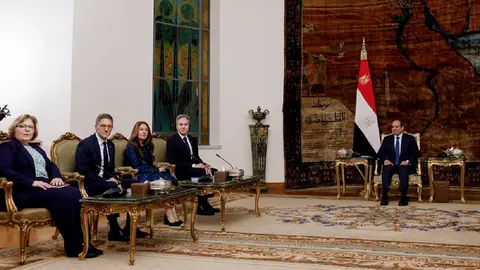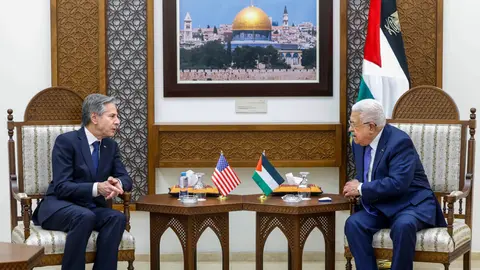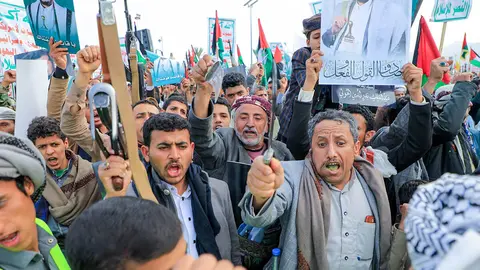Israel links Gaza peace to normalisation with Saudi Arabia
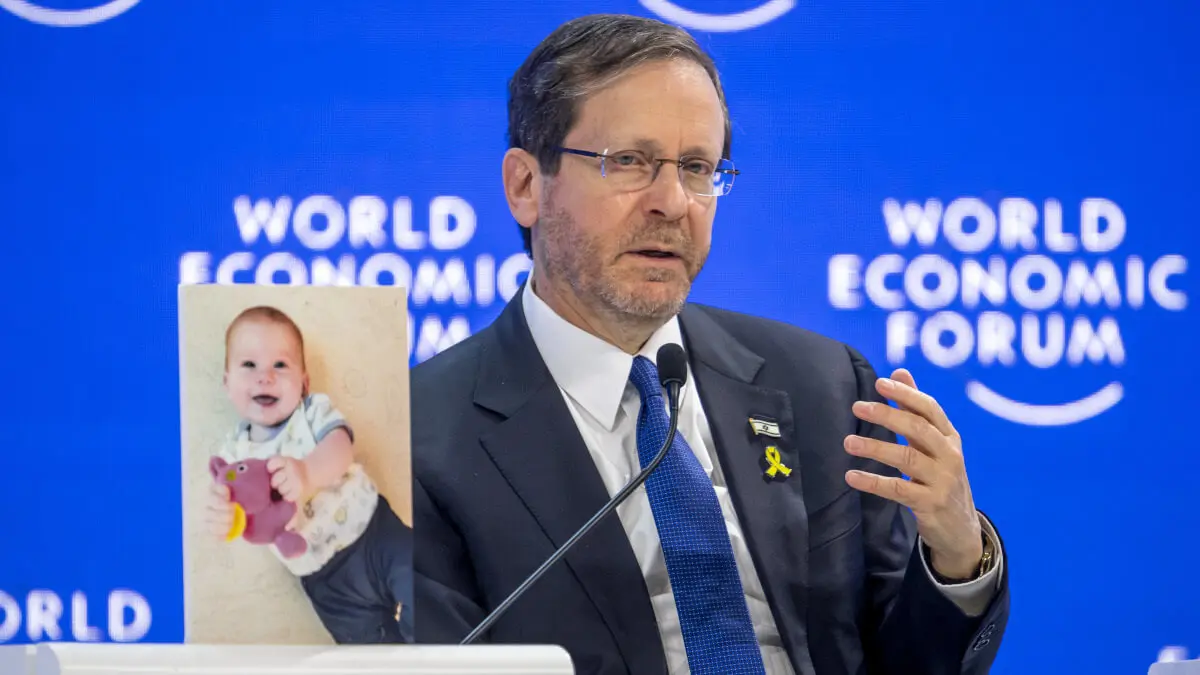
Despite the ongoing war in Gaza and escalating tensions in the Middle East, normalisation between Saudi Arabia and Israel remains a feasible scenario. In fact, a peace agreement between the two countries could have direct consequences on the current conflict in Gaza, with an impact also at the regional and global level.
For Israeli President Isaac Herzog, the normalisation of relations between Israel and Saudi Arabia is a key element in ending the war with Hamas, as he stated at the Davos Forum.
- Israeli government opposed to two-state solution
- Herzog warns of "evil empire" led by Iran
- Red Cross sidelines delivery of medicine to hostages
This milestone would mark a turning point in the Middle East and strengthen Israel's regional integration, a key point not only for Jerusalem but also for Washington. Months before the outbreak of the war, the US set as a foreign policy objective the normalisation between Israel and the Kingdom, thus expanding the Abraham Accords and, in turn, establishing an Arab-Israeli alliance to confront Iran.
Herzog sees an agreement with Riyadh as 'an opportunity to move towards a better future in the world and in the region'. But he warns that "it will take time".
Herzog's remarks at the Davos Forum come days after Saudi Foreign Minister Prince Faisal bin Farhan acknowledged that regional peace "includes peace for Israel". Bin Farhan indicated that Riyadh would recognise Israel as long as this agreement is linked to the Palestinians and the creation of a Palestinian state.
Secretary of State Antony Blinken has been working in recent weeks with Middle Eastern countries to get them involved in Gaza once the war ends. Washington hopes that the Palestinian Authority, with help from neighbouring nations, will take over the Palestinian enclave.
In Davos, the head of US diplomacy reiterated that the creation of a Palestinian state could help improve Israel's security, while also strengthening its ties with regional countries.
.@SecBlinken discusses a regional approach to long-term peace and stability in the Middle East, in a conversation with @TomFriedman. pic.twitter.com/Y6cUvrSoeK
— Department of State (@StateDept) January 18, 2024
Israeli government opposed to two-state solution
However, the Israeli government, led by Benjamin Netanyahu, opposes the two-state solution. "In any future agreement, Israel needs to control security in all territory west of Jordan," Netanyahu said at his most recent press conference, rejecting US plans.
"This conflict is not about the absence of a Palestinian state, but about the existence of a state, the Jewish state," the Israeli leader said at a press conference where he also slammed the Israeli media for spreading "pessimism" about the war and the opposition for calling for elections in the midst of the Gaza offensive.
עד לניצחון המוחלט. pic.twitter.com/QkR0QjuurA
— Benjamin Netanyahu - בנימין נתניהו (@netanyahu) January 19, 2024
Herzog, for his part, indicated in Davos that public support for the two-state solution is low because Israelis are "traumatised" and are focused "on their own security" after the brutal attack by Hamas on 7 October that left 1,200 dead and more than 200 kidnapped. In this regard, the Israeli president showed a photograph of Kfir Bibas, the youngest hostage who celebrated his first year in captivity yesterday. His brother Ariel, 4, and his parents were also kidnapped. .
On the stage of the World Economic Forum in Davos, we marked the first birthday of baby Kfir Bibas, who was brutally kidnapped from his home in Nir Oz and held, like his parents Shiri and Yarden, and his brother Ariel, in captivity by the terrorist organization Hamas. We will… pic.twitter.com/6pUZzidFTS
— יצחק הרצוג Isaac Herzog (@Isaac_Herzog) January 18, 2024
"When countries talk about a 'two-state solution' they first have to address a preliminary question: are we offered real security?" asked Herzog. "Israelis lost confidence in the peace process because they could see that our neighbours glorify terrorism," Herzog explained, referring to the hundreds of Gazans who went in to kill, kidnap, rape and rob along with Hamas members. Also, a recent poll revealed that a high percentage of Palestinians in both Gaza and the West Bank supported the terrorist group's actions, despite the ongoing war.
Herzog warns of "evil empire" led by Iran
Herzog also used his Davos speech to emphasise the global implications of the Hamas attack, a group that, according to the Israeli president, is just one of the representatives of the "evil empire" led by Tehran.
In addition to Hamas, Hezbollah - also backed by Iran - launches recurrent attacks against Israel, which has led to the evacuation of thousands of people in the north of the country. On the other hand, Yemen's Houthi rebels, funded and armed by Tehran, are threatening international trade with threats and attacks on commercial ships.
"The Houthi issue is a number one priority, because it is raising the cost of living for every family in the world," Herzog said of the Yemeni rebels, whom he described as "a small tribe of 50,000 people assembled with the weapons of an empire".
Red Cross sidelines delivery of medicine to hostages
A few days ago, an agreement brokered by Qatar was announced whereby the more than 100 Israeli hostages kidnapped in Gaza would receive medicine for the first time in exchange for more humanitarian aid entering the Palestinian enclave.
This agreement has once again brought the International Red Cross under fire, as it has announced that it will play "no role" in delivering medicines to the hostages held for more than 100 days by Hamas and other terrorist groups.
Activists outside the Red Cross offices in Dublin organised a display with posters of hostages still held in Gaza and stained clothes symbolizing the atrocities they endure.
— European Jewish Congress (@eurojewcong) January 18, 2024
They call on @ICRC to fulfill its role and insist on access to the hostages held by Hamas. pic.twitter.com/sUHdEsWMIc
In a statement, the Red Cross, which Israel accuses of not caring enough about the hostages, said it had worked "with the parties" to reach the agreement. However, "the agreed mechanism does not imply that the Red Cross will play any role in its implementation, including the delivery of medicines," the statement said.
According to The New York Times, the medicines will be delivered to the hostages by workers from the Hamas-run Gaza Ministry of Health.
Due to the unreliability of the Gazan authorities, the Israeli government expects Qatar to enforce the agreement. According to Netanyahu, Doha has pledged to deliver medicine "to the last hostage who needs it". "I hope they will deliver," the Prime Minister added.
Many of the hostages, who are elderly or ill, are in urgent need of medicine, as their families have warned.

